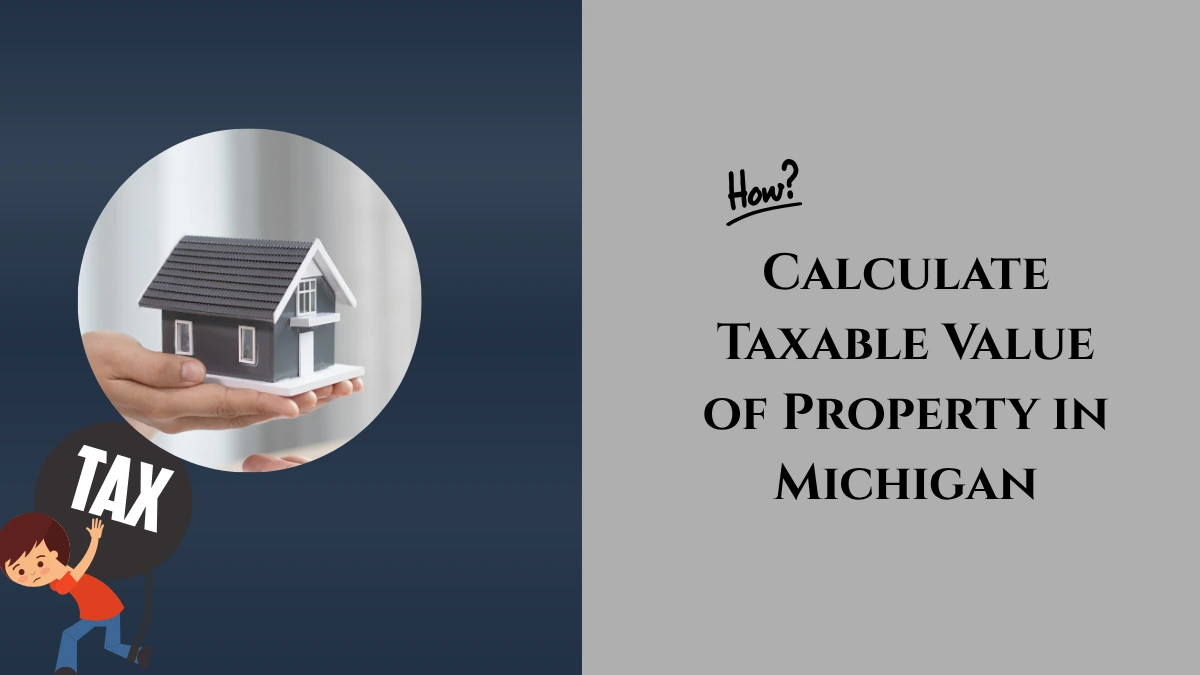Calculating the taxable value of property in Michigan involves understanding several key terms and formulas established by state law.

Here’s a clear, step-by-step guide to help you determine your property’s taxable value and estimate your property tax bill.
- Assessed Value (AV): Determined by your local assessor, this is typically set at 50% of your property’s market value as of December 31 of the previous year.
- State Equalized Value (SEV): This is the assessed value adjusted by county and state equalization to ensure uniformity. SEV also represents 50% of the property’s market value.
- Taxable Value (TV): This is the figure used to calculate your property tax. It is capped and can increase only by the lesser of 5% or the inflation rate (Consumer Price Index, CPI) each year, unless there is a transfer of ownership or improvements to the property.
How to Calculate Taxable Value of Property in Michigan
1. Find Your Property’s Assessed Value and SEV
- The local assessor determines your property’s assessed value, which is usually 50% of the market value.
- The SEV is the assessed value after equalization adjustments.
2. Capped Value Calculation Formula Michigan
Capped Value = (Prior Year’s Taxable Value – Losses) * (the lover of 1.05 or CPI) + Additions
- Prior Year’s Taxable Value: The taxable value from the previous year.
- Losses: Value reductions from property losses (such as demolition).
- CPI: Consumer Price Index (inflation rate).
- Additions: Value increases from new construction or improvements.
This formula ensures that, except for transfers of ownership or new improvements, the taxable value increases by no more than the lesser of 5% or the inflation rate each year.
3. Determine the Taxable Value
- The taxable value is the lower of the capped value or the SEV for the current year.
- If ownership has transferred (eg: you bought the property), the taxable value is “uncapped” and set equal to the SEV for the year following the transfer.
- In subsequent years, the cap applies again.
4. Michigan State Property Tax Calculation Formula and Example
Multiply the taxable value by the total local millage rate (expressed in mills. i.e. 1 mill = $1 per $1,000 of taxable value.
Formula: Property Tax = Taxable Value * (Millage Rate / 1000)
- Example: If your taxable value is $100,000 and your millage rate is 30 mills, your annual property tax is $3,000. Have a view with Michigan property tax estimator to get an expectation.
Key Scenarios Affecting Taxable Value of Property in Michigan
- Annual Increases: Limited to the lesser of 5% or the CPI, unless there are additions or a transfer of ownership.
- Transfers of Ownership: The year after a sale, the taxable value resets to the SEV (uncapping), which may cause a significant increase in property taxes for the new owner.
- Improvements or Additions: New construction or upgrades increase the taxable value beyond the usual cap.
Where to Find Your Taxable Value of Property in Michigan State
- Your annual assessment notice or property tax bill will list your property’s current taxable value.
- You can also contact your local assessor’s office for details as per the key deadlines of Michigan property tax.
In summary, to calculate taxable value of property in Michigan, determine your property’s assessed value, apply the capped value formula, and use the lower of the capped value or SEV as your taxable value. Multiply this by your local millage rate to estimate your property tax bill for the year.
